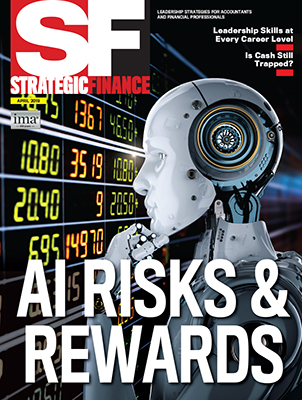In the Navy I learned about leadership by witnessing the characteristics of good leaders and through my own mistakes and successes. As a naval officer, I worked with people of diverse backgrounds and life experiences and saw different cultures when my ship took me to Southeast Asia. I also learned about dealing with conflict and with individuals whose views diverged from mine. Finally, I gained and used skills to support business functions: inventory management, payroll, and financial reporting.
After completing active military service, I was accepted into the MBA program at the University of Michigan, where I earned my degree with a concentration in accounting. Following graduation, I passed both the CPA (Certified Public Accountant) and CMA® (Certified Management Accountant) exams on my first attempts—using paper and pencil. I’m CMA No. 2428, and my certificate was signed by James Bulloch, ICMA’s first managing director.
Then I went to a Big 8 accounting firm but left after two years to work in the energy industry. For the next 30 years I performed internal audits, internal control reviews, compliance reviews (financial, operational, and safety), financial analyses, corporate accounting, valuation, and U.S. Securities & Exchange Commission (SEC) reporting. For computation and reporting, I’ve gone from typewriters, calculators, and paper spreadsheets (“footing and cross-footing”) to personal computers, electronic databases, electronic spreadsheets, and cloud computing.
Skills I learned as a CMA helped my career—connecting operations to financial reporting. I regret I never had much time for IMA® earlier in my career, so I’m doing more now. I’m delighted to help celebrate its 100 years.
Over the years, I’ve learned many lessons:
First, never discount your experience. As a civilian, I didn’t use my military skills until I went to Equatorial Guinea as a compliance manager at an energy plant. There I used the mechanical integrity and operational auditing skills I learned in the Navy. Learn from and use all your experiences.
Second, never stop learning. Three years ago, I sat for a Supply Chain Professional certification because I wanted to know more about operations. Keep current on what’s happening in the profession. Learn from your mentors and those you mentor.
Third, study leadership. There are plenty of “flavor of the month” leadership theories. Read classical works that have withstood the test of time. My favorites are the Marine Corps Leadership Principles and works by Peter Drucker.
Fourth, your career may not always take you “to the top.” Some jobs may require leadership skills; others may be more technical. Be prepared for both. Both offer rewards.
Remember, life isn’t simple or straightforward. But learning from your good and bad experiences can help make you successful.

April 2019



